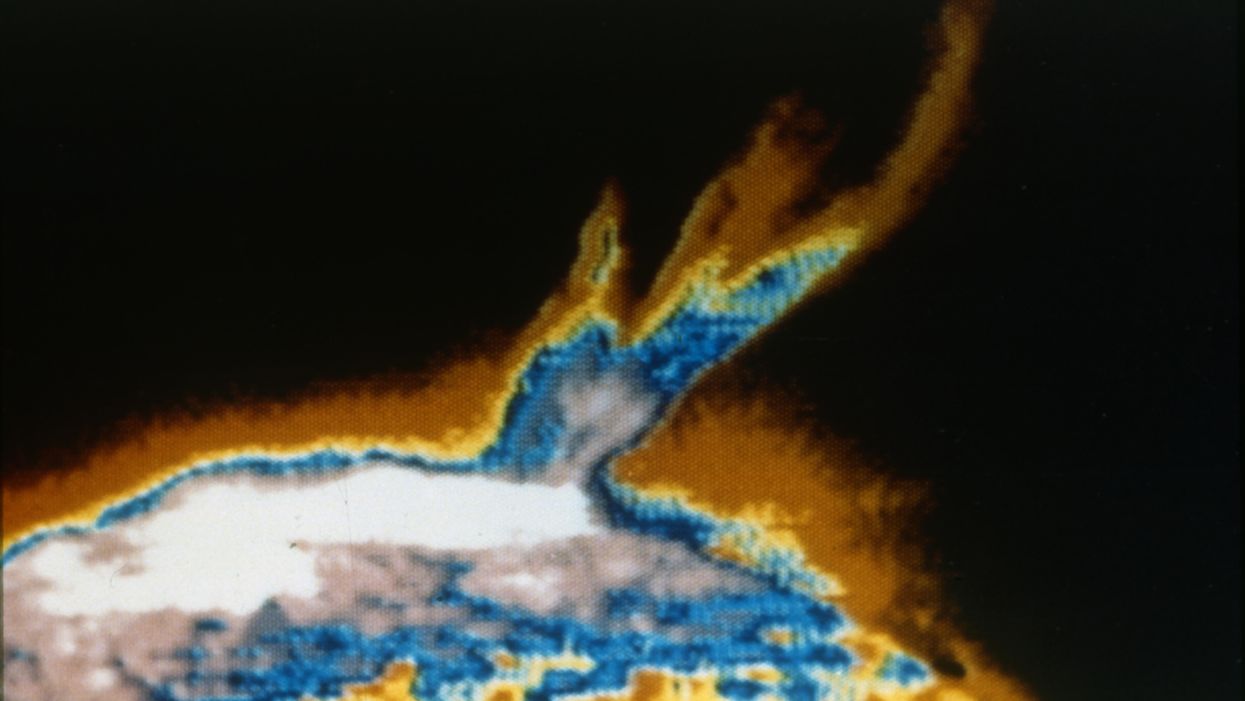
Photo by Heritage Space/Heritage Images/Getty Images

An unpredictable and volatile solar cycle could prompt a massive solar storm with the power to shut down the global internet for months — and the current electromagnetic cycle for earth makes such a storm more and more likely over the next few years.
Recent findings from a study conducted by University of California Irvine Assistant Professor Sangeetha Abdu Jyothi indicated that a solar superstorm would "cause large-scale internet outages covering the entire globe and lasting several months" due to inadequacies in internet infrastructure — namely miles and miles of undersea submarine cables that are responsible for supporting the worldwide internet structure.
Jyothi presented the report, titled, "Solar Superstorms: Planning for an Internet Apocalypse," at October's Association for Computing Machinery's annual conference for their Special Interest Group on Data Communication.
Solar flares themselves can trigger coronal mass ejections — or solar superstorms — that can penetrate the earth's protective UV shield and potentially demolish electromagnetic powered mechanisms. In addition to playing havoc with the internet, other issues including widespread electrical blackouts and more are possible to occur should the internet's infrastructure continue to deteriorate.
As the New York Post's Hannah Sparks put it in a September article, "Local and regional internet infrastructure often relies on optical fiber, which isn't affected by geomagnetic currents, or grounded short-span cables, which are by nature protected from an electromagnetic surge. But it's a different story with undersea cables, which connect continents via the internet. While the cables themselves aren't vulnerable, the electronic repeaters therein, which help amplify the optical signal, are susceptible to damage by geomagnetically induced currents. If enough repeaters blow out, the whole line could be shot."
As early as May, Dr. Scott McIntosh, deputy director of the National Center for Atmospheric Research, told Dana Goward, president of the Resilient Navigation and Timing Foundation that the sun's current 11-year electromagnetic cycle — which began in Dec. 2019 — could be a problem for earth.
"We have every reason to believe that the current solar cycle which began in December 2019 could be the most active since the 1970s," McIntosh said, estimating a 35% to 45% chance a coronal mass ejection will disrupt GPS service for what could be days. "This is a particular concern for the GPS."
"Strong solar storms can charge the atmosphere and prevent signals from getting through for days," he added. "The strongest can damage or even destroy satellites."
"Even with the most concerted government efforts, five or six years will be needed to establish systems and encourage, or where needed, require, users to protect themselves and vital services," Goward added. "Such a timeline will take us well into the coming solar danger zone."
In 1921, a solar storm sparked fires across New York City and around the world, researchers said; in 1989 a dangerous solar storm knocked out power in northeastern Canada for at least nine hours.
Jyothi in August told Wired that the world infrastructure is underprepared to handle such an event.
"Our [internet] infrastructure is not prepared for a large-scale solar event," he said.
Geophysicist Jeffrey Love told the Independent that the impact of the 1921 New York Railroad Storm would have been much worse if it had taken place in modern times.
"When we look back at this time, anything that's related to electricity wasn't as important in 1921 as it is today," he said.
(H/T: New York Post)